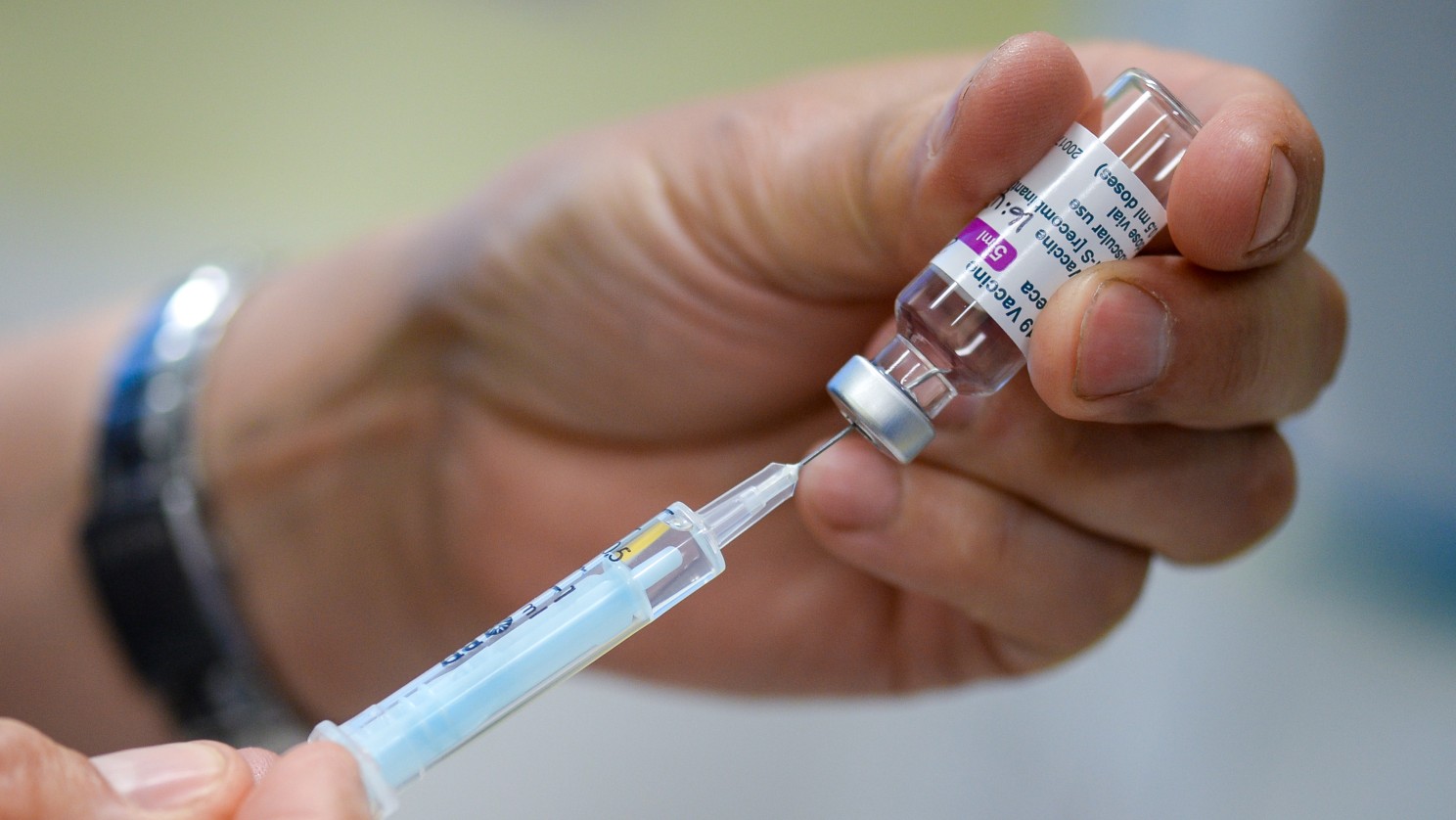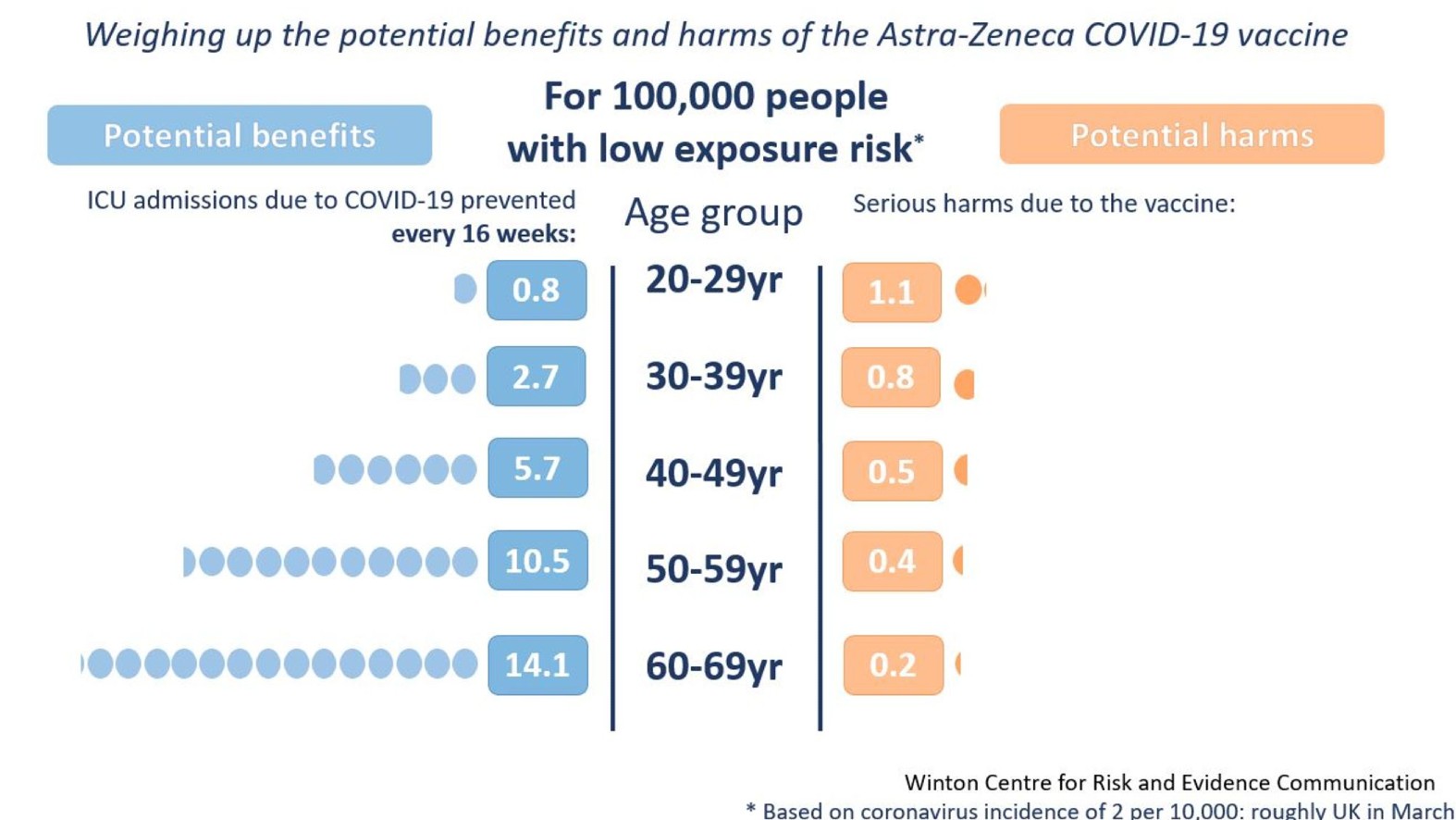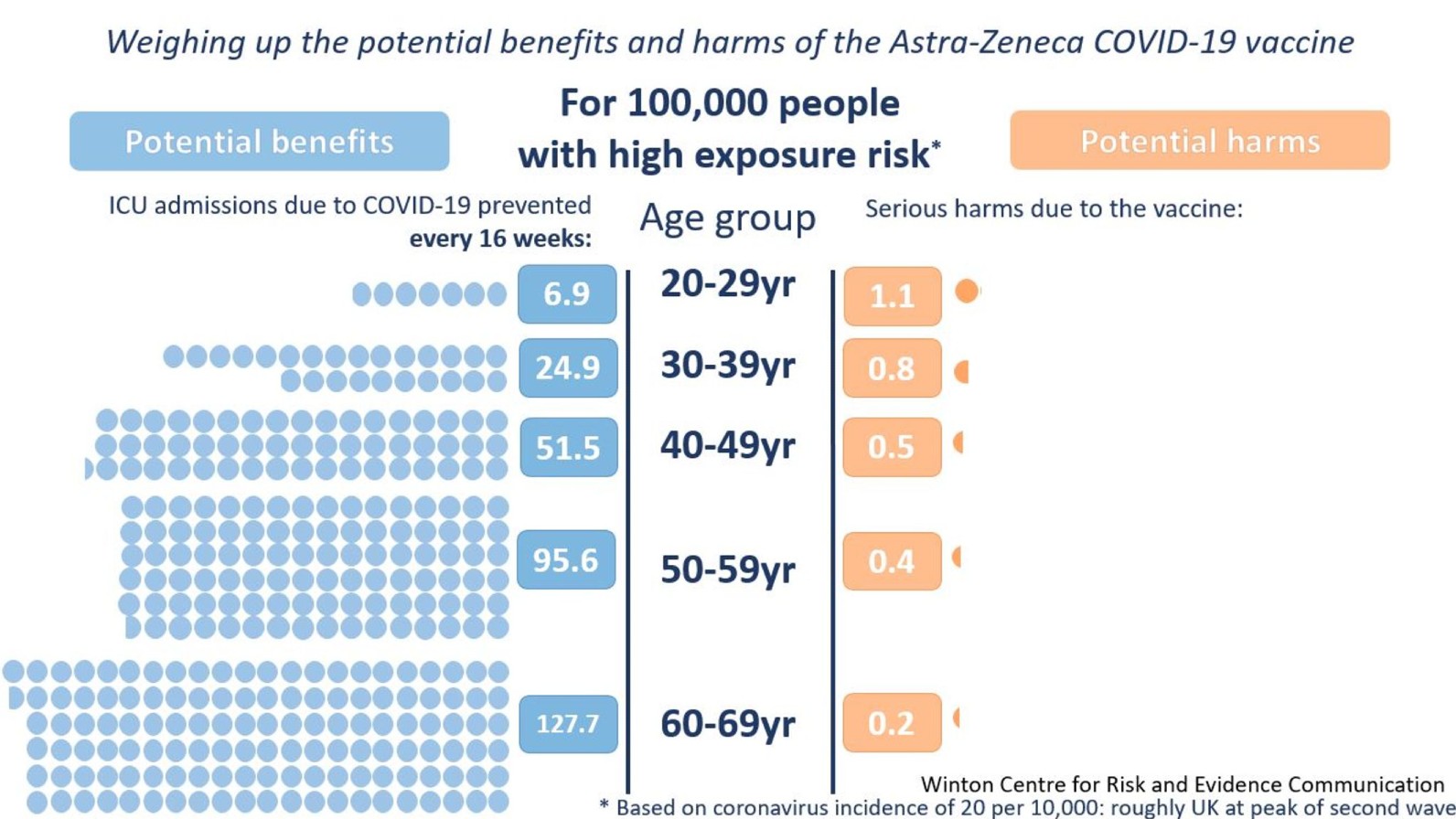The AstraZeneca blood clot risk in context
Experts say odds of adverse side effect are about same as ‘being hit in your home by crashing aeroplane’

A free daily email with the biggest news stories of the day – and the best features from TheWeek.com
You are now subscribed
Your newsletter sign-up was successful
Confidence in the UK’s Covid vaccination programme risks being undermined by news that under-30s will be offered an alternative to the Oxford-AstraZeneca jab as a result of blood clot concerns, experts have warned.
Government scientists and ministers are expected to “embark on a media blitz” to persuade the public that the vaccine is still safe following the announcement by regulators, The Times reports. And media outlets have also been putting the risk into context.
What was announced?
The Week
Escape your echo chamber. Get the facts behind the news, plus analysis from multiple perspectives.

Sign up for The Week's Free Newsletters
From our morning news briefing to a weekly Good News Newsletter, get the best of The Week delivered directly to your inbox.
From our morning news briefing to a weekly Good News Newsletter, get the best of The Week delivered directly to your inbox.
The Joint Committee on Vaccination and Immunisation (JCVI) issued a statement yesterday about “extremely rare” cases of blood clots combined with low platelet counts in a small number of people who had the Oxford-AstraZeneca vaccine. No such cases have been reported in recipients of the Pfizer-BioNTech or Moderna vaccines, the independent advisory body said.
The JCVI experts emphasised that the benefits of the protection that the AstraZeneca vaccine offers against Covid “far outweigh” the risks of an adverse reaction in the vast majority of people. But the committee is advising that adults under 30 without underlying health conditions should be offered an alternative vaccine “if available”.
The recommendation follows a review by the Medicines and Healthcare products Regulatory Agency (MHRA), which concluded the risk vs. benefit of the AstraZeneca jab is more “finely balanced” for younger people, who are generally less likely to die from Covid.
What are the numbers behind the decision?
A free daily email with the biggest news stories of the day – and the best features from TheWeek.com
The MHRA says it received 79 reports of blood clotting and low levels of platelets in UK recipients of the AstraZeneca jab up to and including 31 March, out of 20.2 million doses administered nationwide.
The affected recipients were aged between 18 and 79 years and comprised 51 women and 28 men (the drugs regulator noted that more women have received the jab than men).
All of the blood clot cases occurred after the first dose was administered and 19 were fatal.
So how great is the risk?
The MHRA estimates that the overall risk of these blood clots is approximately four people in a million, or one in 250,000, who receive the vaccine. According to the BMJ, that equates to about the same odds of “being hit in your home by a crashing aeroplane”.
Sky News points out that the US National Blood Clot Alliance estimates that one in 1,000 women who are taking birth control pills will develop a clot each year. And the chances of developing deep vein thrombosis on a plane journey of more than four hours is around one in 4,656 flights, the broadcaster reports.
Why is the advice from European regulators different?
Separate advice issued by the European Medicines Agency (EMA) yesterday does not advise limiting the AstraZeneca vaccine for any age groups, with the regulator insisting that the overall benefits outweigh the risks for all recipients.
Graphics from the University of Cambridge’s Winton Centre for Risk and Evidence Communication offer “important context” for the EMA’s slightly different position, says The Spectator’s James Forsyth.

The data shows how the benefits vs. risks balance changes for different age groups depending on the likelihood of Covid exposure. In the UK, where the chances of getting Covid is currently lower than in Europe, the potential harms narrowly outweigh the potential benefits of having the jab for under-30s.

JCVI expert Adam Finn says Britain also has “extremely detailed data” based on the high number of AstraZeneca jabs it has administered, compared with the EU.
Despite the slight disparity between the guidelines from the two sides of the Channel, however, the regulators are united in the messaging about getting inoculated against Covid.
Professor David Spiegelhalter, chair of the Winton Centre, told BBC Radio 4 this morning that young people should still get vaccinated, not only for their own benefit, but for their families, friends and neighbours too.
Meanwhile, a government spokesperson insisted the AstraZeneca vaccine is “safe, effective and has already saved thousands of lives”.
But Dr Chris Papadopoulos, principal lecturer in public health at the University of Bedfordshire, has warned that the UK advice change has dealt “a severe blow to the public’s vaccine confidence, which is already fragile”.
The government push to calm jab fears is being backed by the sister of Neil Astles, the first named Briton to die from a blood clot on the brain after having the AstraZeneca vaccine.
Dr Alison Astles, pharmacy lead at Huddersfield University, told TheTelegraph that her brother had been “extraordinarily unlucky”, but that she “trusted the process”.
“If we all have the vaccine, a few of us might have a blood clot,” she said, “but the evidence is that fewer people will die.”